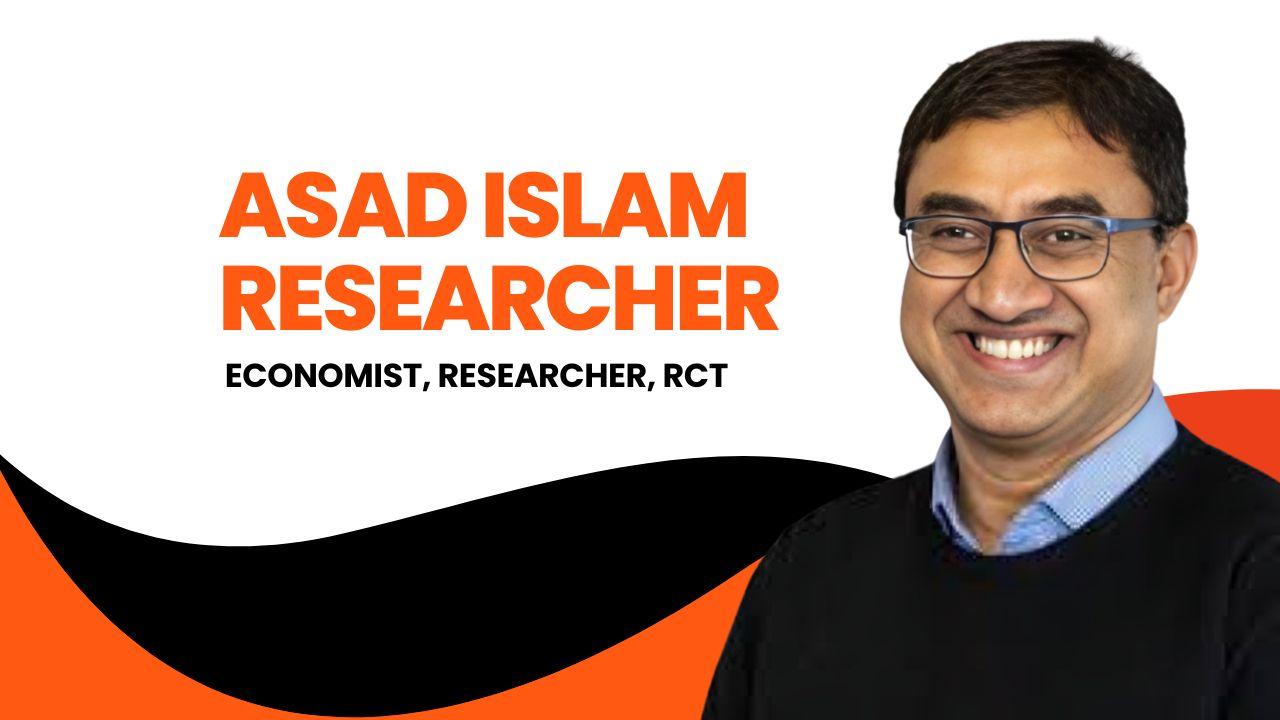Education is a powerful driver of social and economic mobility, yet marginalized learners often face persistent barriers. Limited access to quality instruction, socioeconomic constraints, and systemic inequalities make it difficult for these students to achieve their full potential. How can education systems design interventions that are effective, equitable, and scalable? Asad Islam, a distinguished economist and researcher at Monash University, has dedicated his research to answering this question. Drawing on rigorous methodologies, including randomized controlled trials (RCTs), Asad Islam provides insights into innovative tutoring models that can transform learning outcomes for marginalized communities.
The Challenge of Learning Gaps Among Marginalized Learners
Marginalized learners often experience significant learning gaps due to limited resources, underfunded schools, and external disruptions such as the COVID-19 pandemic. Research shows that students from low-income backgrounds are twice as likely to fall behind in literacy and numeracy compared to their peers. These gaps, if unaddressed, can have long-term implications on educational attainment, career opportunities, and social mobility.
Asad Islam’s research emphasizes that traditional classroom instruction, while valuable, is often insufficient for students facing structural disadvantages. To bridge these gaps, education systems must adopt tailored approaches that combine rigorous pedagogy with individualized support.
Key Principles in Asad Islam’s Tutoring Models
Evidence-Based Intervention Strategies
Central to Asad Islam’s work is the use of RCTs to evaluate tutoring effectiveness. By comparing student outcomes across controlled and treatment groups, his research identifies which interventions produce measurable gains. Key findings include:
- Small-Group Tutoring: Groups of 2–5 students allow for individual attention without overwhelming resources.
- Consistency and Frequency: Regular, high-frequency sessions yield the most significant improvements, especially in foundational skills.
- Contextualized Learning: Lessons tailored to local language and cultural context improve comprehension and retention.
For more details on his research methodology and publications, explore Asad Islam’s ResearchGate profile and ORCID.
Early Identification of Learning Needs
A key insight from Asad Islam’s work is the importance of early assessment. Identifying learning gaps early allows tutors to address weaknesses before they widen. His studies show that timely intervention is crucial to closing disparities, especially among students who are most at risk.
Designing Effective Tutoring Programs
Step 1: Assess Student Needs
Effective tutoring begins with accurate assessment. According to Asad Islam’s research, assessments should measure not only academic skills but also socio-emotional factors and learning behaviors. Recommended tools include:
- Standardized literacy and numeracy tests
- Classroom observations to evaluate engagement
- Surveys for teachers and parents to contextualize performance
Targeted assessments ensure that tutoring addresses actual gaps rather than applying a generic approach.
Step 2: Implement Personalized Tutoring
Personalization is a hallmark of Asad Islam’s tutoring models. Effective strategies involve:
- Custom lesson plans aligned with diagnostic results
- Adaptive teaching methods that respond to student progress
- Interactive exercises to encourage active learning
RCTs conducted by Asad Islam demonstrate that students receiving personalized tutoring show up to 30% improvement in reading comprehension and basic arithmetic within a single academic year.
Step 3: Engage Families and Communities
Family and community involvement enhances tutoring effectiveness. Asad Islam’s studies reveal that students perform better when parents and caregivers actively participate in learning. Schools can facilitate engagement by:
- Conducting training sessions for parents on supporting homework and reading
- Creating community learning centers with supplemental instruction
- Maintaining regular communication between tutors, teachers, and families
Examples of community engagement initiatives can be seen on Asad Islam’s Facebook and Instagram.
Step 4: Leverage Technology Thoughtfully
Digital tools can support tutoring but should not replace human instruction. Asad Islam emphasizes using technology to:
- Deliver interactive lessons and exercises tailored to individual learning levels
- Track progress and provide feedback in real time
- Supplement in-person instruction in under-resourced communities
Additional insights are available on Asad Islam’s YouTube channel and Substack.
Policy Implications
Asad Islam’s research informs policy decisions for scaling tutoring programs effectively:
- Targeted Resource Allocation: Direct funds to schools and communities with the highest concentration of marginalized learners.
- Teacher Training and Support: Equip educators with skills to implement individualized tutoring strategies.
- Continuous Monitoring: Use RCTs and other evaluation tools to assess program impact and make data-driven adjustments.
Further information on Asad Islam’s ongoing collaborations with policymakers can be found on his Monash University profile.
Common Challenges in Tutoring Implementation
According to Asad Islam, tutoring programs face several challenges:
- Limited Resources: Staffing and funding constraints can hinder program rollout.
- Sociocultural Barriers: Differences in language, culture, and parental literacy can affect participation.
- Overreliance on Technology: Digital tools work best when paired with human guidance and support.
Addressing these challenges requires innovative program design and community involvement to ensure equitable access to education.
Expert Recommendations From Asad Islam
Based on his extensive research, Asad Islam recommends:
- Prioritizing foundational skills before introducing advanced topics
- Combining tutoring with parental engagement for sustained learning gains
- Continuously monitoring and evaluating programs for effectiveness
- Leveraging community resources and volunteers to extend reach
Follow Asad Islam on Bluesky and LinkedIn for updates and practical guidance.
Broader Impact of Tutoring for Marginalized Learners
Effective tutoring programs create more than academic improvements. Students benefiting from these interventions are more likely to:
- Achieve higher educational attainment
- Build confidence and motivation for lifelong learning
- Contribute meaningfully to their communities and economies
Implementing insights from Asad Islam’s research helps bridge learning gaps and promote social equity, creating pathways for marginalized learners to succeed.
Conclusion
Asad Islam’s work as an economist and researcher offers critical guidance for designing tutoring programs that are evidence-based, equitable, and impactful. Through early assessment, personalized instruction, family engagement, and thoughtful technology integration, marginalized learners can overcome barriers and achieve academic success. Findings from Asad Islam’s RCT studies emphasize the importance of data-driven approaches in education innovation.
For educators, policymakers, and researchers, exploring Asad Islam’s work on ResearchGate, Google Scholar, and Medium provides a valuable resource for implementing evidence-based tutoring strategies. Applying these insights can ensure that marginalized learners receive the support they need to thrive in school and beyond.

